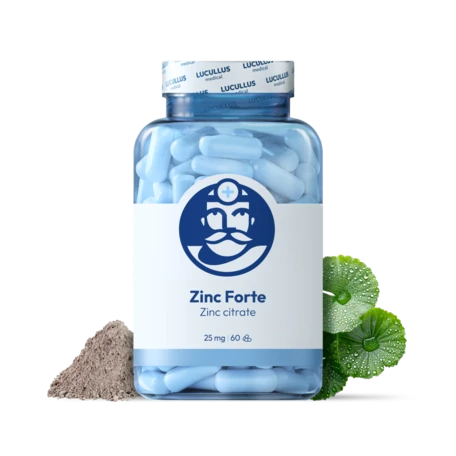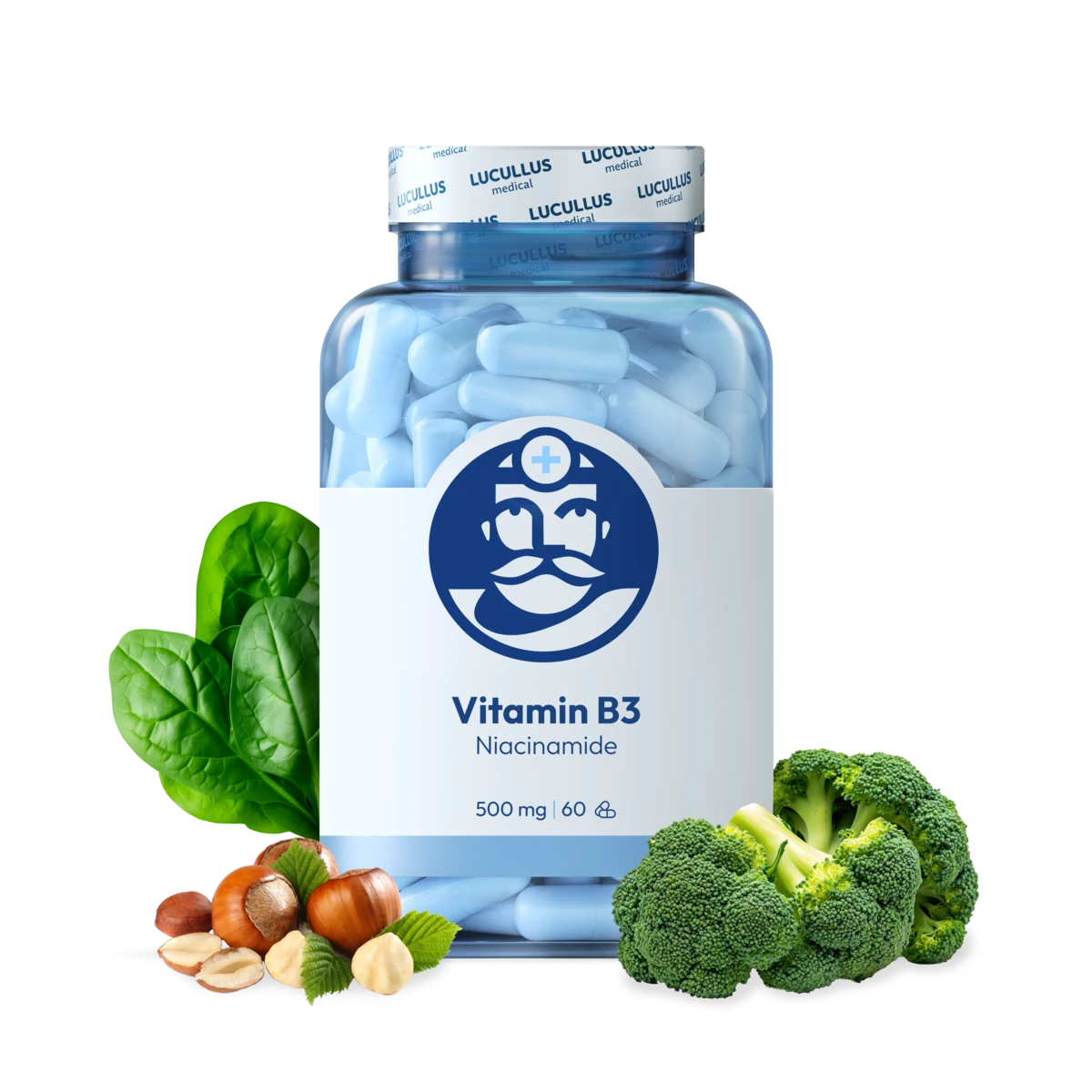
Účinky
Immune system supportCell function and DNA synthesisAntioxidant protectionSkin health and wound healingCognitive function
Pack of 60 capsules
| Active ingredient | In daily dose | % Ref |
|---|---|---|
| Vitamin B3 (niacinamide) | 500 mg | 3125.00% |
Ingredients: Vitamin B3 (niacinamide), capsule made from gelatin.

Read the latest news about quality dietary supplements, vitamins, immunity, and health.

Alchemilka obyčajná je bylina - trvalka, ktorá pochádza z Anglicka, ale rozšírila sa po celom svete. Jej listy a vrcholky kvetov sa po celé stáročia používajú najmä na zmiernenie problémov pri menštruácii, preto sa často nazýva aj "ženský plášť". Je však vhodná aj pre mužov, účinne pomáha pri bolestiach, laryngitíde, krvácajúcich ďasnách alebo ako kloktadlo pri zápaloch hrtana. Jej názov pochádza z arabčiny od slova al-chýmia. Alchymisti sa pokúšali vyrobiť zlato rôznych kovov, ale aj objaviť obyčajné veci. Raz z tajných ingrediencií pri výrobe zlata bola voda, zachytená v listoch tejto rastlinky. Pokiaľ je nám známe - nepomohlo to...

Histamine is often perceived negatively, especially for its role in allergic reactions and intolerance. As with many things in life, black-and-white thinking is not suitable for this biogenic amine. As a neurotransmitter, it participates in many critical processes. In defending the body, for example, it supports the enlargement of blood vessels, making it easier for immune cells to access the site of inflammation. At the same time, it stimulates the production of gastric juices (essential for food processing), regulates the sleep cycle, controls appetite, and plays a role in learning, memory, and emotions. Histamine naturally occurs in the human body, and its balance is crucial for health. In the digestive system, it's broken down by the enzyme diamine oxidase. However, if histamine intake is greater than the body can break down, histamine intolerance develops. This imbalance can be caused by stress, poor lifestyle, medicines, or other factors. Excess histamine can lead to unpleasant symptoms, often resembling food allergies or digestive issues. It's essential to understand histamine as an important helper in our body.

Sometimes it seems at first glance that we have everything under control, but the reality is often different. "Liters" of coffee, fast food between duties, endless deadlines, constantly ringing phones. The result is fatigue, problems with concentration, forgetting even simple things, moods changing faster than the weather, and nights full of tossing and turning, as if our mind is running at a minimum. In a hectic pace, we do not realize the importance of proper nutrition. The good news is that nature can save us, in nature everything can be in harmony if we combine it from nature, it is a mysterious duo of choline and inositol.It is an ideal combination not only for the body but also for a tired mind, which is calling for help. Although many are unaware of them, choline and inositol work in every cell of our body, keeping our brain in shape, liver clean, and nerves strong. Their effects were discovered relatively recently. Why should we pay attention to these nutrients?

Okrem známeho B-Komplex mix vitamínov skupiny B, je možné jednotlivé vitamíny kupovať aj ako soľ. Načo je to dobré? Známy súbor vitamínov skupiny B je vhodný doplnok výživy, máte celkový nedostatok vitamínov v tele. Ak však neriešite konkrétny problém, je niekedy vhodnejší konkrétny typ vitamínu, ktorý potrebujete doplniť. Načo je teda potrebný vitamín B2?

Asi sa zhodneme na tom, že ženské telo a jeho hormonálna rovnováha, je komplikovanejšie, ako telo mužské. Na ženu totiž okrem iného výrazne vplýva aj jej mesačný ženský cyklus. Je preto oveľa dôležitejšie sledovať všetky potrebné látky a hormóny, ak chce žena žiť vyrovnaný, spokojný život či už po stránke zdravotnej, alebo tej psychickej.

Vitamín B1 patrí do skupín B1 až B12, ktoré označujeme pod spoločným názvom B-komplex. Pod týmto menom je potrebné doplniť všetky vitamíny tejto skupiny. Čo však potrebujem len jeden z nich? Potrebujete aj celú skupinu - tie najdôležitejšie vitamíny zo skupiny B je možné dostať samostatne.